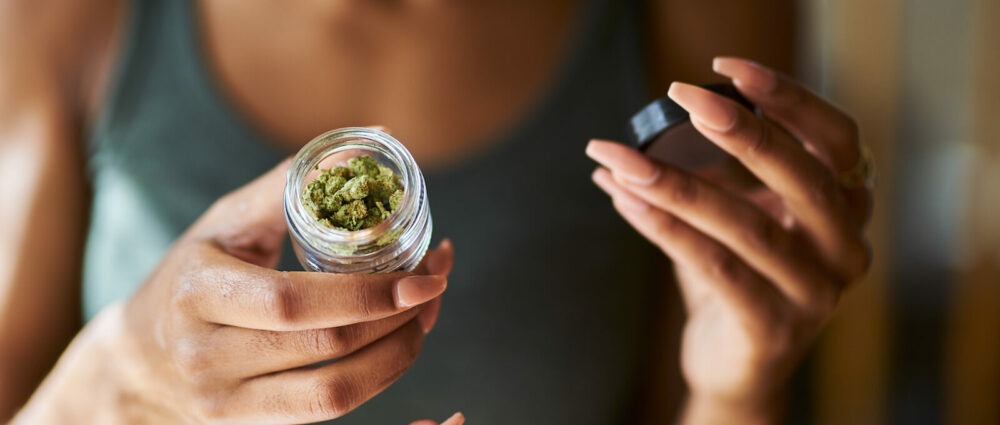Table of Contents
Alcohol abuse is a huge problem in the United States, with 5.6% of adults dealing with an alcohol use disorder and more than 414,000 teenagers with the same condition in 2019. As a country, there are about 95,000 deaths annually with alcohol as a contributing factor. With the massive number of Americans abusing alcohol, it’s no surprise that dangerous interactions from mixing prescription medications and alcohol are so common.
Whether painkillers, antidepressants, or medications are used to treat nerve pain, it’s not a smart move to drink while taking any medication, and gabapentin is no exception. This commonly prescribed medication is not safe to be used in combination with any amount of alcohol. Some extremely detrimental reactions can happen if you mix it with alcohol.
Gabapentin, also known as Neurontin, is a prescription drug regularly prescribed to treat the nerve pain associated with seizures and shingles. While this medication is not a controlled substance in the eyes of the government, it is often involved in substance abuse cases. Patients often wonder whether this medication is safe to take with alcohol, but it is far from safe to mix the two.
According to the manufacturer, Neurontin should not be taken with any other substance that causes sleepiness or dizziness, as the medication can amplify these effects to a life-threatening level. In addition to alcohol, those taking gabapentin should completely avoid real and synthetic opioids and many other substances.
Side Effects of Gabapentin and Alcohol: Why Mixing Them Can Be Dangerous
Gabapentin is a widely prescribed medication for many conditions, including restless leg syndrome, hot flashes, epilepsy, and neuropathic pain. When used as directed by a physician, gabapentin on its own is a fairly safe medication. As with all pharmaceuticals, there are some side effects, but most are mild.
Some of these side effects include:
- Drowsiness
- Dizziness
- Headache
- Blurred or double vision
- Anxiety
- Memory problems
- Nausea
- Vomiting
- Constipation
- Dry mouth
- Increased appetite
- Memory problems
- Strange or unusual thoughts
- Seizures
- Difficulty breathing
This medication is fairly new compared to others that are available. Gabapentin was first available in 1993, with a generic version hitting the market in 2004. Gabapentin impacts the GABA neurotransmitter without impacting the receptors that are impacted by benzos or opioids. Because it does not trigger the same neurotransmitters, gabapentin is not on the United States’ controlled substance list, as it is not considered a drug of abuse. Unfortunately, there are a lot of commonalities between this and other intoxicants.
Gabapentin makes users feel calm and tranquil along with increased sociability. Many people report a happy, euphoric high, with feelings similar to the high that cannabis creates. Even though the government does not classify this as a controlled substance, it is still commonly used recreationally. It can be found on the streets under the common names “gabbies” and “morontin.” With so many people using this recreationally, combining it with alcohol, opioids, and other unsafe substances is not uncommon.
When folks mix Neurontin with alcohol, several dangerous effects can occur. One of the biggest reasons this could end up being a lethal combination is that, on their own, both gabapentin and alcohol depress the respiratory and central nervous systems. These substances amplify these depressant effects, making you feel dizzy and drowsy, leading to impairments, accidents, and even death. Additionally, anyone that drinks while taking gabapentin is at increased risk of having a seizure.
According to the FDA, there are risk factors that can increase the likelihood of experiencing the more dangerous effects, including:
- Respiratory conditions, including COPD
- Use of opioids and other CNS depressants
- Older age
Anytime alcohol and gabapentin are combined, there is a chance that the user will experience one of the many negative effects of mixing the two.
These side effects include:
- Anxiety
- Drowsiness
- Coordination problems
- Nausea with or without vomiting
- Headache
- Lightheadedness
- Constipation
- Fatigue
- Cognitive issues
- Diarrhea
While most of these don’t seem like they would be severe, using gabapentin in conjunction with alcohol can intensify these side effects, making them uncomfortable, if not severe. Not only can the addition of alcohol make these effects worse, but it can also make them last even longer.
Signs That You Are Abusing Gabapentin And Alcohol
Just because a drug is not classified as a controlled substance, that does not mean that it is safe or that it won’t get someone high. The reason gabapentin and alcohol are used together so often is that people enjoy the effects of both individually and want to combine them. Alternatively, some people have been prescribed gabapentin for a legitimate reason and ignore their doctor and pharmacists’ warnings about mixing their prescription with alcohol. No matter how it happens, using them together is a recipe for disaster.
Unfortunately, any drug that can be abused will be abused. Gabapentin is known for its many enjoyable side effects, including calmness and feelings of euphoria, which lead to its popularity. However, because it is not classified as a controlled substance, it is often overlooked as something that could lead to abuse and addiction, but gabapentin abuse is not uncommon.
While gabapentin does have low addictive potential, one of the most important aspects of physical addiction is withdrawal symptoms, and gabapentin leads to withdrawal in many users. The enjoyable high also gives it a higher chance of psychological dependence.
Anytime a medication is used outside a doctor’s directions, it is being abused. Whether that is as simple as taking your next dose too early or someone is crushing their pills and snorting them to chase a high. When it comes to admitting you have a problem, many people struggle with this, especially if they’re using the medication to treat a condition. However, the sooner you admit that you’re misusing gabapentin, the better the chances are of recovery.
Alcoholism is much more common, with more than 5% of American adults dealing with alcohol abuse disorder. What may start as drinking socially or having a drink here and there to unwind can quickly lead to a life that includes drinking alcohol far too often.
For anyone concerned that they may be addicted to gabapentin or alcohol, some signs are pretty obvious, including spending too much on your drug of choice, leaving not enough for your bills and other necessities, neglecting both home and work responsibilities, and sudden changes in mood or behavior.
If you’re concerned that a loved one is abusing gabapentin or alcohol, the signs may not be so obvious initially.
Some of the most common signs that someone is experiencing an addiction include:
- Bloodshot eyes
- Insomnia
- Small or enlarged pupils
- Slurred speech
- Sudden changes in weight
- Disregard of harm
- Loss of control
- Denial of addiction
These are just a few of the more common signs of addiction. If you believe you or a loved one are experiencing an addiction to alcohol, gabapentin, or any other substance, it’s best to seek help as soon as possible.
How to Get Help If You’re Addicted to Gabapentin And Alcohol
Whether you’ve been combining gabapentin and alcohol for a while, or it is a relatively new experience, addiction can develop at any point. However, the earlier you catch it, the better your chances of recovery. Once you come to terms with the fact that there is a problem at hand, you should reach out and seek help from a team of professionals. With a support system, recovery is possible.
Getting clean and staying that way is a challenge for many individuals, and getting there alone is not easy. It often takes professional help, ideally with both medical and psychological support. Additionally, hearing about the experiences of others in the same boat as you can help you feel less alone in your journey towards a clean, healthy lifestyle.
Having a plan in place to help you get through this difficult time is important. Detoxing and getting the drugs out of your system is just the beginning. To truly heal and move on, getting down to the bottom of things and figuring out where your addiction stems from and your reasoning for using are some of the biggest steps. Once you know why you got to this point, it will be easier to develop a solid plan to move forward.
Understanding your triggers and learning healthy coping mechanisms to get through trying times make a huge difference in staying clean and resisting the temptation to use again in the future. No matter what you’re dealing with, getting help with your addiction increases the likelihood of staying clean.
Sources:
Infinite Recovery has strict sourcing guidelines and relies on peer-reviewed studies, academic research institutions, and medical associations for our references. We avoid using tertiary references as our sources. You can learn more about how we source our references by reading our editorial guidelines and medical review policy.
- National Institute on Alcohol Abuse and Alcoholism (NIAAA). Understanding Alcohol Use Disorder | National Institute on Alcohol Abuse and Alcoholism (NIAAA). Published April 2021. Accessed July 1, 2022. https://www.niaaa.nih.gov/publications/brochures-and-fact-sheets/understanding-alcohol-use-disorder
- National Institute on Alcohol Abuse and Alcoholism (NIAAA). Alcohol Facts and Statistics | National Institute on Alcohol Abuse and Alcoholism (NIAAA). Published March 2022. Accessed July 1, 2022. https://www.niaaa.nih.gov/publications/brochures-and-fact-sheets/alcohol-facts-and-statistics
- Westphalen D. Gamma Aminobutyric Acid: Uses and Side Effects of GABA Supplement. Healthline. Published March 7, 2019. Accessed July 1, 2022. https://www.healthline.com/health/gamma-aminobutyric-acid
- Yasaei R, Katta S, Saadabadi A. Gabapentin. In: StatPearls. StatPearls Publishing; 2022. Accessed July 1, 2022. http://www.ncbi.nlm.nih.gov/books/NBK493228/
















